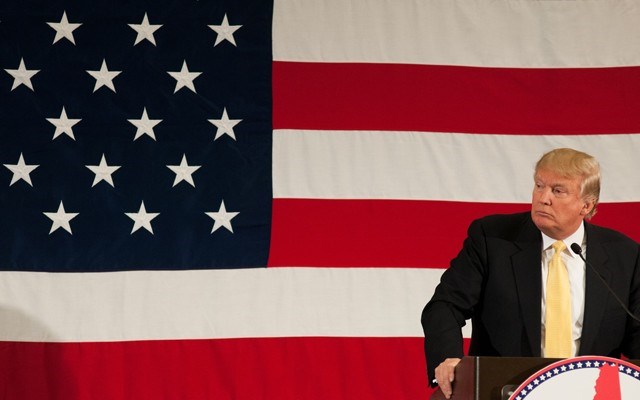In many ways, 2016 has been a banner year for pushing forward the conversation around what it means to be a man in these strange times.
Early in the calendar, we lost two musical icons in David Bowie and Prince, who blurred the boundaries of gender identity and challenged the conventional notions of what it means to be a male rockstar.
Meanwhile, countless thinkpieces and blog posts have tracked the apparent rise of the "sensitive man," unafraid to show off his vulnerability and his well-coiffed man-bun.
Expressing deeply felt emotions has become de rigeur for the Millennial man, and whether you consider this expression a self-serving performance, a long-overdue unshackling of the repressed male psyche, or something in between, it's nonetheless sparked a discussion that would have been impossible to have even a handful of years ago.
But 2016 has also exposed the fragility of the male ego in some circles in rather frightening ways. High-profile rape cases both here and south of the border reiterated the inherent bias built into our respective legal systems that favours the accused and re-victimizes the accuser. The travelling tire fire that is the U.S. election campaign (only five days left, people), pitting a radioactive Cheeto and sexual predator against one of the most disliked political figures in recent memory — who, surprise, just happens to be a woman — has served as the battleground where the war over the future of masculinity is waged for all to behold.
The leaked 2005 video in which Donald Trump is overheard bragging about all the disgusting things his celebrity allows him to do to women was just the latest culmination of an ugly campaign the candidate regularly spent demeaning, dismissing and objectifying women. The fact that nearly 40 per cent of voters refused to abandon the real estate tycoon in the immediate aftermath of the scandal, according to the first national poll following the video's release, proves just what a tenuous hold many Trump supporters have on their own masculinity.
"Many men, in fact, see Trump as the candidate who can restore men's status in society," wrote Atlantic staff writer Olga Khazan in an Oct. 12 piece. "According to several recent analyses, about half of men feel American culture has become too soft and feminine, and they feel men are suffering as a result. Many seem to find comfort in Trump's talk of male dominance and success."
It's hard not to draw a line between the misogyny of Trump's "locker room talk" and the lies we've been feeding our boys for generations. Growing up, we're regularly told to "be a man" by fathers, brothers, uncles and coaches without any explanation as to why the definition of what a man can be is so limited in scope. To be a man is to repress the very emotions that make us human, to maintain an air of stoicism that betrays the difficulties of everyday life. We're told to not take no as an answer, even if that refusal means ignoring the wants and needs of the person across from us.
It's that twisted sense of entitlement that has manifested itself in the space between how men think they're supposed to act and the reality of their existence that has played out on the school playgrounds and in the dingy bars and clubs frequented by young men and women, all the way up to the top echelons of power.
We're doing a disservice to society by repeating these tired platitudes about masculinity. It's normal for parents to tell their kids they can be anything they want to be when they grow up. Maybe it's time we let our young men live up to that adage.




